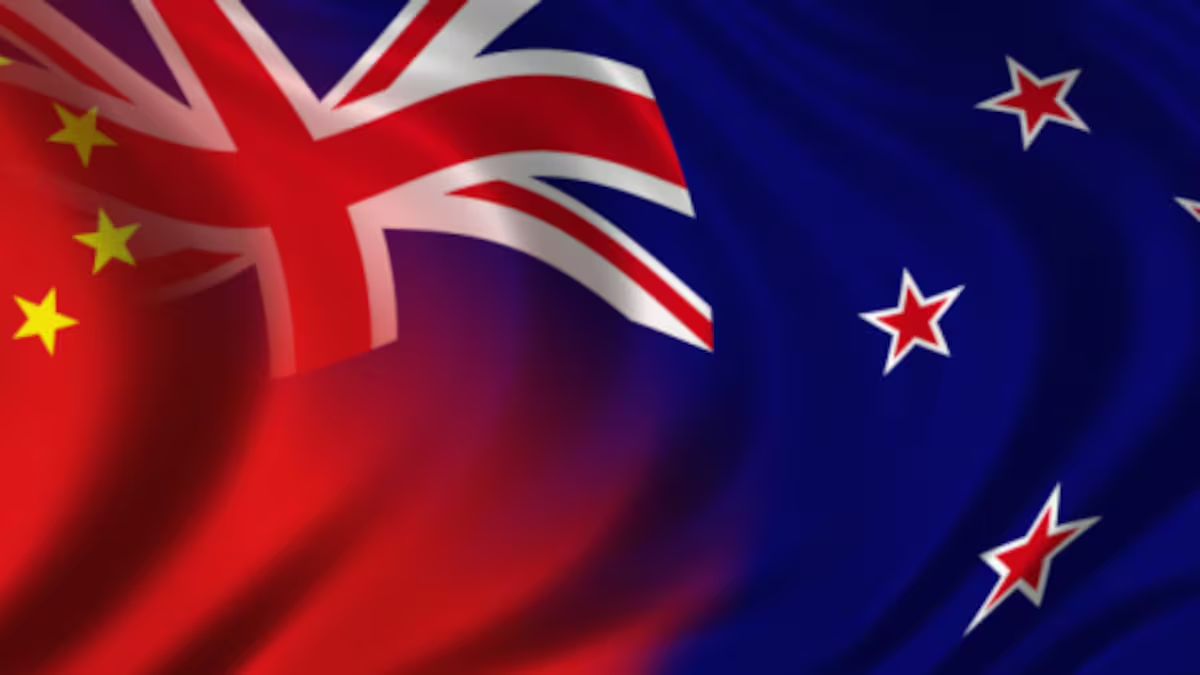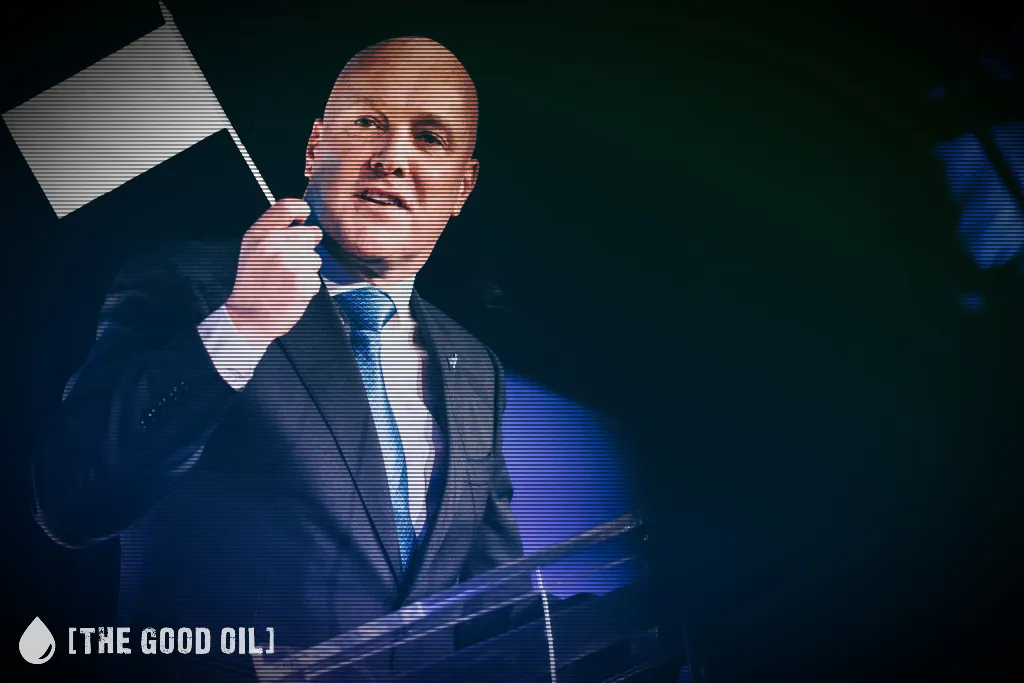Table of Contents
Geoffrey Miller
Geoffrey Miller is the Democracy Project’s geopolitical analyst and writes on current New Zealand foreign policy and related geopolitical issues. He has lived in Germany and the Middle East and is a learner of Arabic and Russian. He is currently working on a PhD at the University of Otago on New Zealand’s relations with the Gulf states.
Don’t put it all at risk.
That’s likely to be the take-home message for New Zealand Prime Minister Christopher Luxon in his meetings with Li Qiang, the Chinese Premier.
Li’s visit to Wellington [last] week is the highest-ranking visit by a Chinese official since 2017. The trip down under – Li is also visiting Australia – constitutes something of a charm offensive by Beijing. Pandas are on the agenda for Li’s stop in Adelaide.
China’s advance publicity for the trip has accentuated the positives and downplayed points of disagreement. The Chinese foreign ministry’s official spokesperson reminded journalists of the ‘enormous benefits’ of Wellington’s relationship with Beijing.
A pledge to discuss ‘international and regional issues of mutual interest’ was the only faint hint that thornier issues – such as New Zealand’s contemplation of joining ‘Pillar II’ of the AUKUS pact – might also be discussed behind the scenes.
This ‘good cop’ approach continued after Li touched down in Wellington. In his first comments made after his arrival in New Zealand, released in a written statement, the Chinese Premier was upbeat about the health of the bilateral relationship.
Showering New Zealand with praise – ‘China-New Zealand relations have always stood at the forefront of China’s relations with the developed world’ – Li suggested there could be ‘an even brighter future’ if the momentum between the two countries were maintained.
Coincidentally, a promise of ‘brighter future’ was also the theme of the New Zealand National Party’s 2008 election campaign that ushered in John Key as New Zealand’s Prime Minister. That vote heralded the start of the golden years for trade with China, riding the waves of a pioneering free trade agreement signed by Helen Clark’s Labour-led Government just before Key’s victory.
Xi Jinping visited New Zealand in 2014, resulting in the signing of a Comprehensive Strategic Partnership. Meanwhile, China became New Zealand’s biggest trading partner in 2017, the same year that Li Qiang’s predecessor visited the country.
Key was famously bullish on China and has maintained personal relationships with the country’s leaders since he resigned in 2016 and resumed a business career.
But while the 2010s boom brought talk of New Zealand being a ‘rockstar economy’, seven years on, New Zealand is now in recession. And new trade figures for the year ending in March 2024 show that New Zealand’s trade with China has – relatively speaking – hit turbulence.
The numbers show that trade in both directions fell for the first time since the Comprehensive Strategic Partnership was signed. Most troubling for Christopher Luxon will be that New Zealand’s goods exports to China – which are dominated by primary products such as dairy, meat and wood products – fell by almost nine per cent, from $NZ20.07 billion to $NZ18.34 billion.
In the overall trade figures, this fall was somewhat masked by a post-pandemic recovery in the export of services – particularly travel, as Chinese tourists regained the ability to visit New Zealand. Nevertheless, overall exports still fell by around two per cent, from $NZ21.39 to $NZ20.09 billion.
There will be no better opportunity than Li’s visit for Christopher Luxon to talk to about ways to turn this somewhat troubling economic trend around. After all, Luxon focused heavily on economic matters during his election campaign in 2023 – pledging to get New Zealand ‘back on track’.
And while Luxon has also focused on the need for trade diversification – which has included programmes to boost ties with India and the Gulf states – a sudden drop in trade with China during a recessionary climate and rising unemployment is probably not what the New Zealand Prime Minister had in mind.
As would be expected, the Chinese Premier’s visit to Wellington is a carefully-choreographed and economically-focused mission – at least on the surface. For the charm offensive to work, it has to be genuine.
But behind the scenes, New Zealand’s position on Aukus will remain the elephant in the room. The pact was not specifically mentioned in China’s official accounts of foreign minister Wang Yi’s visit to Wellington in March – but New Zealand counterpart Winston Peters later confirmed that Wang had raised the matter.
And in May, Chinese Ambassador to New Zealand Wang Xiaolong was unusually forthright on AUKUS. The Ambassador repeatedly referred to the arrangement as a ‘military alliance’ – a label clearly at odds with AUKUS-friendly characterisations of the pact as a technology-sharing partnership.
The Ambassador said AUKUS was ‘clearly and unabashedly designed to maintain US hegemony and contain other countries’ development’, adding that ‘joining such an alliance will not make any country more secure or make the Asia-Pacific region more stable’. He closed by noting his hope that any decision by New Zealand on AUKUS would be ‘taking fully into account its own long-term fundamental interests’.
This is undoubtedly plain speaking. China would not be happy if New Zealand became involved with AUKUS, to put it mildly.
But Li Qiang’s trip to New Zealand is about the big picture.
Its chief purpose is to remind Christopher Luxon of just how important China is to New Zealand, both economically and beyond.
It is a goodwill tour with a subtext.
There is also a lot to lose.
This article was originally published by the Democracy Project.









